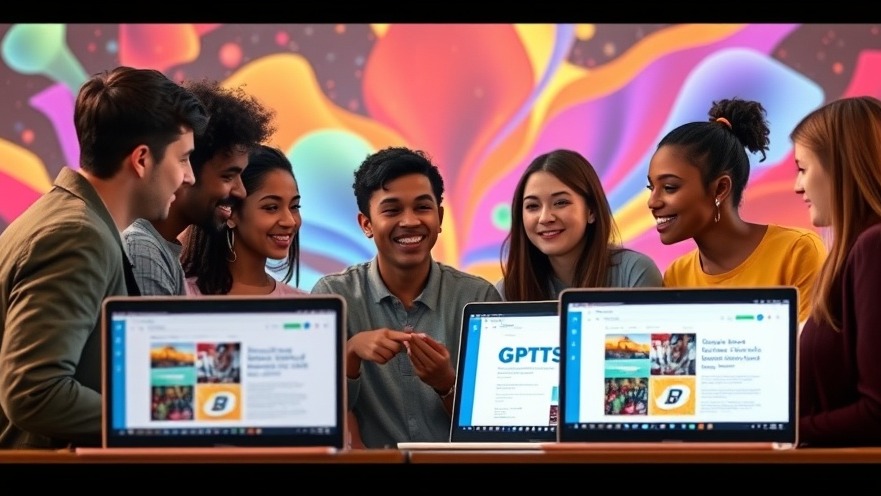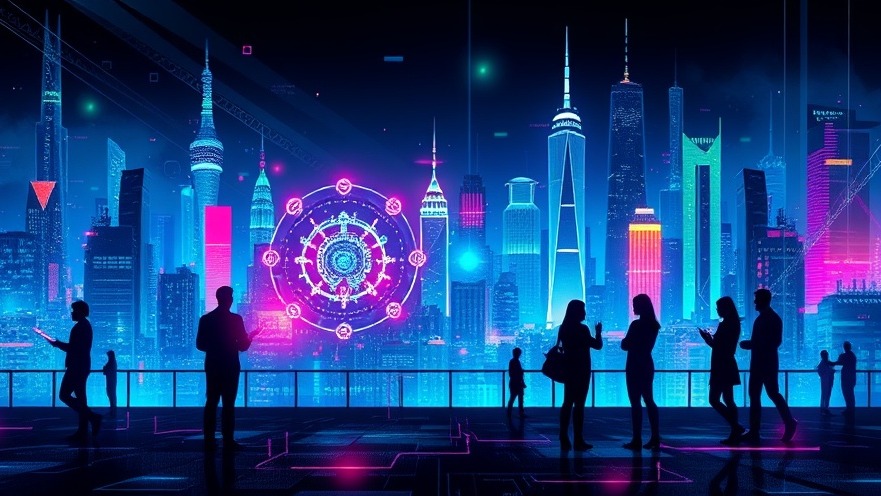
OpenAI's Open Source Model: A Game-Changer in AI Technology
OpenAI's recent foray into the open-source model has not only captivated industry insiders but also made waves in technology circles. The release of their model, which rivals the performance of even the top-tier versions, is sparking discussions on accessibility, safety, and potential future applications. This pivot toward open-source technology could signify a transformative moment for the artificial intelligence landscape.
In 'The Industry Reacts to OpenAI's Open Source!', the discussion dives into the innovative implications of OpenAI’s new technology, exploring key insights that sparked deeper analysis on our end.
The Impact of Open Models on Accessibility
One of the most exciting aspects of OpenAI's move is the democratization of technology that comes with it. Sam Altman, CEO of OpenAI, and Steven Adler, a former member of their safety research team, have shared their enthusiasm over the capabilities of this new model. With performance on par with advanced versions like 04 mini, it opens doors for developers and users who previously could not afford such technologies. The ability to run high-performance AI models on consumer hardware, including laptops, not only lowers barriers for aspiring developers but also enables small businesses to harness the power of AI.
The Challenges and Considerations of Open-Source AI
While the excitement surrounding OpenAI's open-source model is palpable, it isn't without its concerns. Industry experts like Aiden Clark and Flavio Adamo have highlighted potential safety issues tied to open-source technology. Questions about the model's capability to perform malicious tasks raise ethical discussions, prompting a deeper analysis of deployment strategies and safety measures. Former OpenAI safety researchers have also emphasized the necessity of creating clear threat models to safeguard against misuse. This combination of enthusiasm and caution reflects the dual-edged nature of powerful AI tools.
Innovation Sparks Collaboration within the Industry
OpenAI's release could trigger collaborative efforts in the tech community. For instance, Matt Schumer's project, GPTOSS Pro mode, enhances the new open-source models by chaining multiple instances together to produce superior outputs. This collaboration reflects a growing trend of utilizing open-source technologies to spur innovation across various sectors. The simplicity of sharing and modifying open-source developments fosters an environment of creativity and practical solutions.
Open Source vs. Proprietary Models: What Lies Ahead?
A captivating conversation seems to pivot around the future of AI models. While OpenAI’s open-source model sets the stage for an intense market shift, there’s speculation about what this means for proprietary models moving forward. Some industry observers postulate that OpenAI’s strategy may influence competitors to adjust pricing structures dramatically, as Nathan Lambert indicated. By commoditizing a significant portion of the model market, OpenAI may be forcing companies into a corner where they must reconsider their pricing methodologies.
Propelling AI from Model to Application
The implications of OpenAI's model extend beyond mere technology; they beckon a shift in where value is derived in AI applications. As Aaron Levy from Box noted, the true impact may lie within the applications built over these frameworks rather than the core models themselves. This potential pivot from model-centric value to application-centric innovations invites businesses to rethink how they strategize around AI integration into workflows and consumer solutions.
As we look into the exciting future of AI technology, the developments emerging from OpenAI’s latest release pose more than just technical questions—they challenge us to rethink our relationship with AI, our responsibilities in its development, and the innovation it can promote. Stay tuned, as the rich conversation around open-source technology continues to evolve and offers fresh insights into the future.
Have you explored the new open-source model from OpenAI yet? Share your experiences, and let’s foster a dialogue about the future of AI in our lives!
 Add Row
Add Row  Add
Add 




Write A Comment